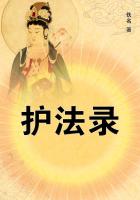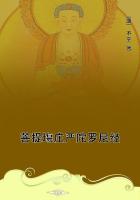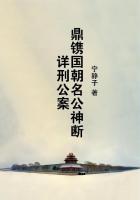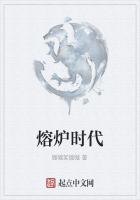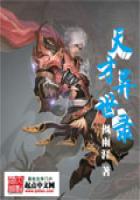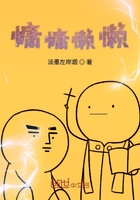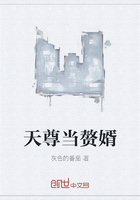And the author of the "Aegimius", whether he is Hesiod or Cercops of Miletus (says): `There, some day, shall be my place of refreshment, O leader of the people.'
Fragment #8 --
Etym. Gen.:
Hesiod (says there were so called) because they settled in three groups: `And they all were called the Three-fold people, because they divided in three the land far from their country.' For (he says) that three Hellenic tribes settled in Crete, the Pelasgi, Achaeans and Dorians. And these have been called Three-fold People.
ENDNOTES:
(1) sc. the golden fleece of the ram which carried Phrixus and Helle away from Athamas and Ino. When he reached Colchis Phrixus sacrificed the ram to Zeus.
(2) Euboea properly means the `Island of fine Cattle (or Cows)'.
FRAGMENTS OF UNKNOWN POSITION
Fragment #1 --
Diogenes Laertius, viii. 1. 26: (1)
`So Urania bare Linus, a very lovely son: and him all men who are singers and harpers do bewail at feasts and dances, and as they begin and as they end they call on Linus....'
Clement of Alexandria, Strom. i. p. 121:
`....who was skilled in all manner of wisdom.'
Fragment #2 --
Scholiast on Homer, Odyssey, iv. 232:
`Unless Phoebus Apollo should save him from death, or Paean himself who knows the remedies for all things.'
Fragment #3 --
Clement of Alexandria, Protrept, c. vii. p. 21:
`For he alone is king and lord of all the undying gods, and no other vies with him in power.'
Fragment #4 --
Anecd. Oxon (Cramer), i. p. 148:
`(To cause?) the gifts of the blessed gods to come near to earth.'
Fragment #5 --
Clement of Alexandria, Strom. i. p. 123:
`Of the Muses who make a man very wise, marvellous in utterance.'
Fragment #6 --
Strabo, x. p. 471:
`But of them (sc. the daughters of Hecaterus) were born the divine mountain Nymphs and the tribe of worthless, helpless Satyrs, and the divine Curetes, sportive dancers.'
Fragment #7 --
Scholiast on Apollonius Rhodius, Arg. i. 824:
`Beseeching the offspring of glorious Cleodaeus.'
Fragment #8 --
Suidas, s.v.:
`For the Olympian gave might to the sons of Aeacus, and wisdom to the sons of Amythaon, and wealth to the sons of Atreus.'
Fragment #9 --
Scholiast on Homer, Iliad, xiii. 155:
`For through his lack of wood the timber of the ships rotted.'
Fragment #10 --
Etymologicum Magnum:
`No longer do they walk with delicate feet.'
Fragment #11 --
Scholiast on Homer, Iliad, xxiv. 624:
`First of all they roasted (pieces of meat), and drew them carefully off the spits.'
Fragment #12 --
Chrysippus, Fragg. ii. 254. 11:
`For his spirit increased in his dear breast.'
Fragment #13 --
Chrysippus, Fragg. ii. 254. 15:
`With such heart grieving anger in her breast.'
Fragment #14 --
Strabo, vii. p. 327:
`He went to Dodona and the oak-grove, the dwelling place of the Pelasgi.'
Fragment #15 --
Anecd. Oxon (Cramer), iii. p. 318. not.:
`With the pitiless smoke of black pitch and of cedar.'
Fragment #16 --
Schliast on Apollonius Rhodius, Arg. i. 757:
`But he himself in the swelling tide of the rain-swollen river.'
Fragment #17 --
Stephanus of Byzantium:
(The river) Parthenius, `Flowing as softly as a dainty maiden goes.'
Fragment #18 --
Scholiast on Theocritus, xi. 75:
`Foolish the man who leaves what he has, and follows after what he has not.'
Fragment #19 --
Harpocration:
`The deeds of the young, the counsels of the middle-aged, and the prayers of the aged.'
Fragment #20 --
Porphyr, On Abstinence, ii. 18. p. 134:
`Howsoever the city does sacrifice, the ancient custom is best.'
Fragment #21 --
Scholiast on Nicander, Theriaca, 452:
`But you should be gentle towards your father.'
Fragment #22 --
Plato, Epist. xi. 358:
`And if I said this, it would seem a poor thing and hard to understand.'
Fragment #23 --
Bacchylides, v. 191-3:
Thus spake the Boeotian, even Hesiod (2), servant of the sweet Muses: `whomsoever the immortals honour, the good report of mortals also followeth him.'
ENDNOTES:
(1) This and the following fragment are meant to be read together. -- DBK(2) cp. Hesiod "Theogony" 81 ff. But Theognis 169, `Whomso the god honour, even a man inclined to blame praiseth him', is much nearer.
DOUBTFUL FRAGMENTS
Fragment #1 --
Galen, de plac. Hipp. et Plat. i. 266:
`And then it was Zeus took away sense from the heart of Athamas.'
Fragment #2 --
Scholiast on Homer, Od. vii. 104:
`They grind the yellow grain at the mill.'
Fragment #3 --
Scholiast on Pindar, Nem. ii. 1:
`Then first in Delos did I and Homer, singers both, raise our strain -- stitching song in new hymns -- Phoebus Apollo with the golden sword, whom Leto bare.'
Fragment #4 --
Julian, Misopogon, p. 369:
`But starvation on a handful is a cruel thing.'
Fragment #5 --
Servius on Vergil, Aen. iv. 484:
Hesiod says that these Hesperides.... ....daughters of Night, guarded the golden apples beyond Ocean: `Aegle and Erythea and ox-eyed Hesperethusa.' (1)Fragment #6 --Plato, Republic, iii. 390 E:
`Gifts move the gods, gifts move worshipful princes.'
Fragment #7 -- (2)
Clement of Alexandria, Strom. v. p. 256:
`On the seventh day again the bright light of the sun....'
Fragment #8 --
Apollonius, Lex. Hom.:
`He brought pure water and mixed it with Ocean's streams.'
Fragment #9 --
Stephanus of Byzantium:
`Aspledon and Clymenus and god-like Amphidocus.' (sons of Orchomenus).
Fragment #10 --
Scholiast on Pindar, Nem. iii. 64:
`Telemon never sated with battle first brought light to our comrades by slaying blameless Melanippe, destroyer of men, own sister of the golden-girdled queen.'
ENDNOTES:
(1) Cf. Scholion on Clement, "Protrept." i. p. 302.
(2) This line may once have been read in the text of "Works and Days" after l. 771.
WORKS ATTRIBUTED TO HOMER


